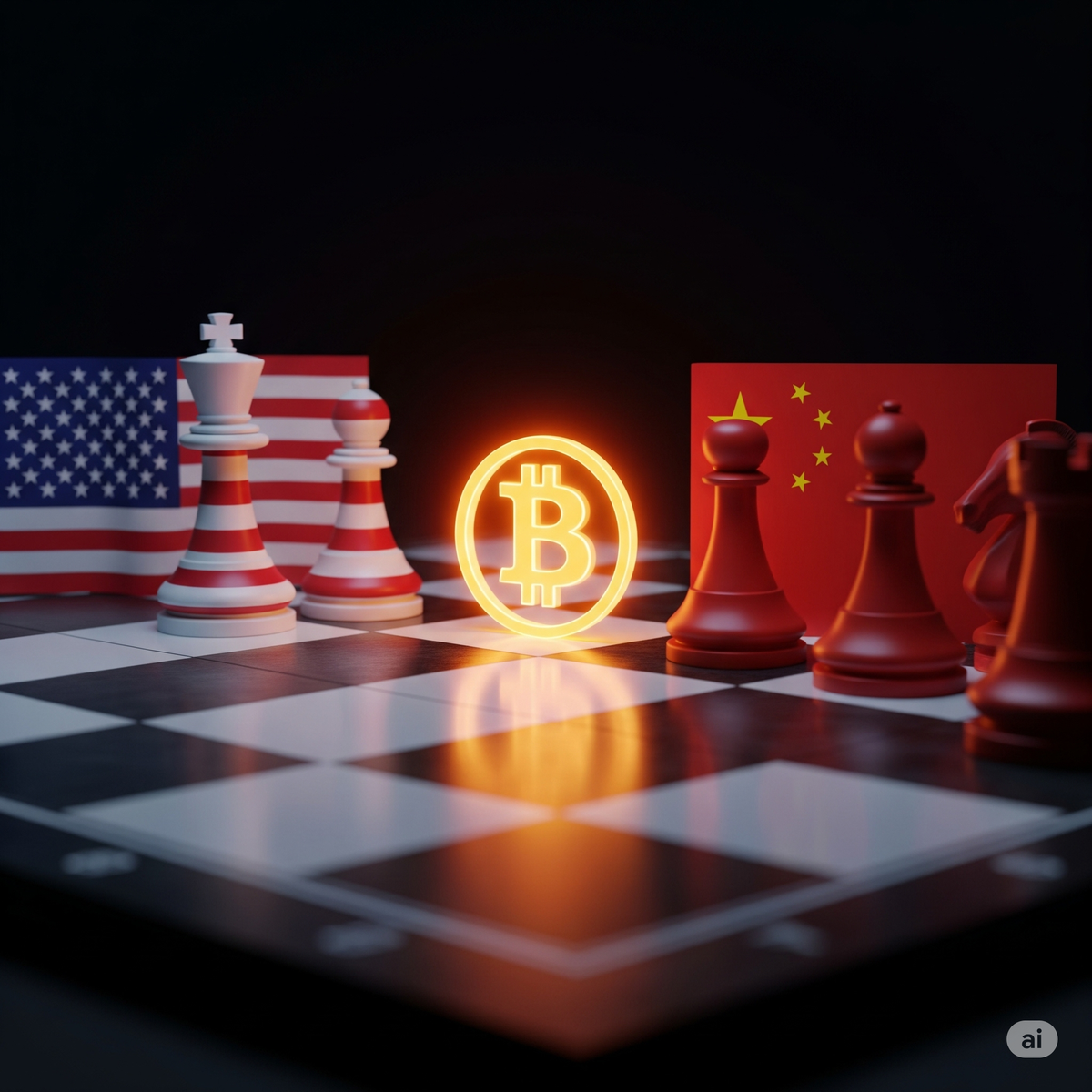Breaking: The New Arms Race and Bitcoin as a National Security Imperative
In a world of escalating geopolitical tensions, the president is casting Bitcoin not just as an investment, but as a crucial weapon in the economic cold war with China. Welcome to the era of Bitcoin Hegemony.

In a world of escalating geopolitical tensions, the president is casting Bitcoin not just as an investment, but as a crucial weapon in the economic cold war with China. Welcome to the era of Bitcoin Hegemony.
Forward to 39 minutes and 10 seconds
In a statement that sent shockwaves through both the political and cryptocurrency spheres, Donald Trump has reframed the conversation around Bitcoin. It’s no longer just about investment portfolios or decentralized finance; it’s about national security.
"It's a very funny thing, crypto," Trump began. "I became a fan of crypto and to me, it's an industry. I view it as an industry and if we didn't have it, China would or somebody else would, but most likely China."
This is a stark departure from the usual political discourse surrounding digital assets. Trump is explicitly positioning Bitcoin within a framework of great power competition, a concept that has been gaining traction in certain circles as "Bitcoin Hegemony."
The Core of Bitcoin Hegemony
So, what exactly is Bitcoin Hegemony? At its heart, it’s a theory that views the world's leading cryptocurrency as a strategic geopolitical asset. Proponents of this idea argue that in an increasingly digital and multipolar world, the nation that embraces and integrates Bitcoin into its economic and strategic planning will gain a significant upper hand.
The logic is straightforward: Bitcoin's fixed supply makes it a powerful hedge against the inflation of traditional fiat currencies. Its decentralized nature offers a financial rail that is resistant to censorship and control by any single entity. For a nation-state, holding a significant amount of Bitcoin in its treasury could be akin to holding a large reserve of digital gold, a way to project financial power and maintain stability in a volatile world.
Trump’s comments reveal a keen understanding of this perspective. "We've dominated that industry...we've created a very powerful industry and that's much more important than anything that we invest in," he stated, emphasizing the strategic value of the crypto sector beyond personal financial gains.
A Surprising Ally for the Dollar?
One of the more intriguing arguments within the Bitcoin Hegemony thesis, and one that Trump touched upon, is the idea that Bitcoin could actually relieve pressure on the U.S. dollar.
"I notice more and more you pay in Bitcoin...people are saying it takes a lot of uh pressure off the dollar and it's a great thing for our country," he remarked. This may seem counterintuitive. How can a competing currency be good for the dollar?
The theory suggests that by providing an alternative for global settlement and a store of value, Bitcoin can offload some of the immense pressure that comes with being the world's sole reserve currency. This could, in turn, strengthen the dollar's long-term position by making the global financial system more resilient and less reliant on a single point of failure.
The Geopolitical Chessboard
The president's vocal support, coupled with his administration's recent push for clearer crypto regulations, is being interpreted by many as a deliberate strategy to cement the United States as the global epicenter of the cryptocurrency industry. His closing statement left no room for ambiguity: "What I did do there is build an industry that's very important and you know if we didn't have it, China would."
As Washington grapples with creating a comprehensive legal framework for digital assets, the concept of Bitcoin Hegemony is no longer a fringe idea. It has been thrust into the heart of the debate. The explicit connection between cryptocurrency and the economic competition with China ensures that Bitcoin will be viewed not just through a financial lens, but a geopolitical one. The race for Bitcoin dominance is on, and the implications for the future of global power are just beginning to unfold.